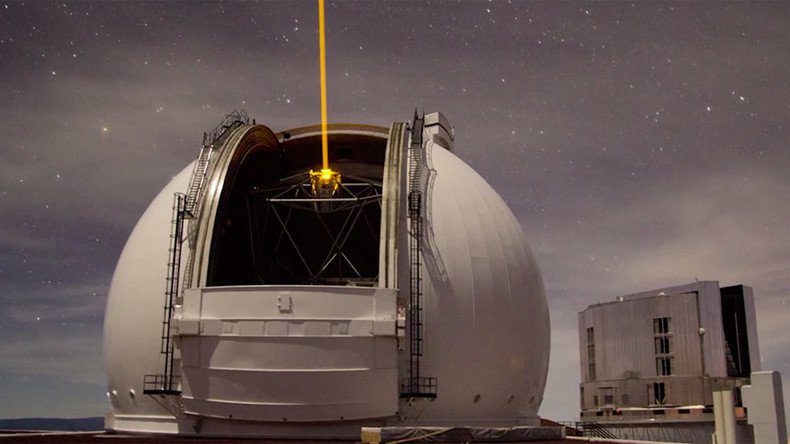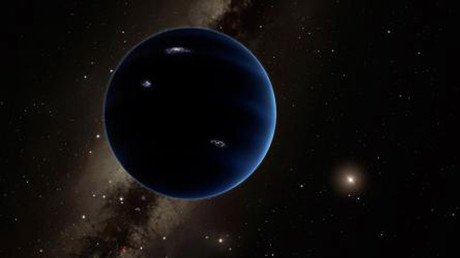Astronomers may be closer to finding mystery 'Planet Nine' after reducing search area

French scientists say they may be one step closer to locating a mysterious ninth planet, after cutting their search area in half. US astronomers earlier said the solar system’s 'Planet Nine' might exist, but conceded they had no idea where it could be.
After studying data from NASA's Cassini spacecraft orbiting Saturn, French researcher Jacques Laskar of the Paris Observatory stated on Tuesday that a ninth planet may indeed exist in the outer reaches of our solar system, but “not just anywhere,” AFP reported.
Using mathematical modeling, Laskar and his colleagues calculated what influence the ninth planet would have on the movement of other planets as it passed nearby. They studied the orbit postulated by the US astronomers, on the assumption that the planet would circle the Sun in a lop-sided, highly elongated, oval loop.
The findings were published in the journal Astronomy and Astrophysics.
At its most distant position from the Sun, the planet would be too far away for any effect on other planets to be detectable, which limits astronomers to a searchable zone which represents only about half of the 10,000-20,000-year orbit.
The team has, however, managed to reduce the search area by 50 percent, by eliminating two zones in which they say the modeling does not match reality.
"We have cut the work in half," Laskar said. The researchers believe the search can be further narrowed if Cassini's mission, which is due to end next year, is extended to 2020. However, scientists believe it will take years to find Planet Nine, if it exists at all.
The French team's conclusions come just one month after California Institute of Technology scientists Konstantin Batygin and Mike Brown predicted the existence of Planet Nine, which is thought to have a mass 10 times the size of Earth. The two scientists used mathematical modeling and computer simulations to predict its existence, which is thought to explain the strange clumping behavior of a group of dwarf planets in the Kuiper Belt, a field of icy objects and debris beyond Neptune.
Although Planet Nine's existence has yet to be confirmed, the discovery of Neptune took place in a similar way in 1845, when French mathematician Urbain Le Verrier noticed that the orbit of Uranus didn’t exactly follow the orbit predicted by Newton’s law of gravity. In short, this is because the yet-to-be-discovered Neptune had a gravitational pull on Uranus.
Although Pluto was previously considered the ninth planet, it was demoted to “dwarf planet” status about a decade ago, as it possesses different characteristics than the other major planets of the solar system. The charge to demote Pluto was led by the same scientists who announced the possibility of Planet Nine's existence.













